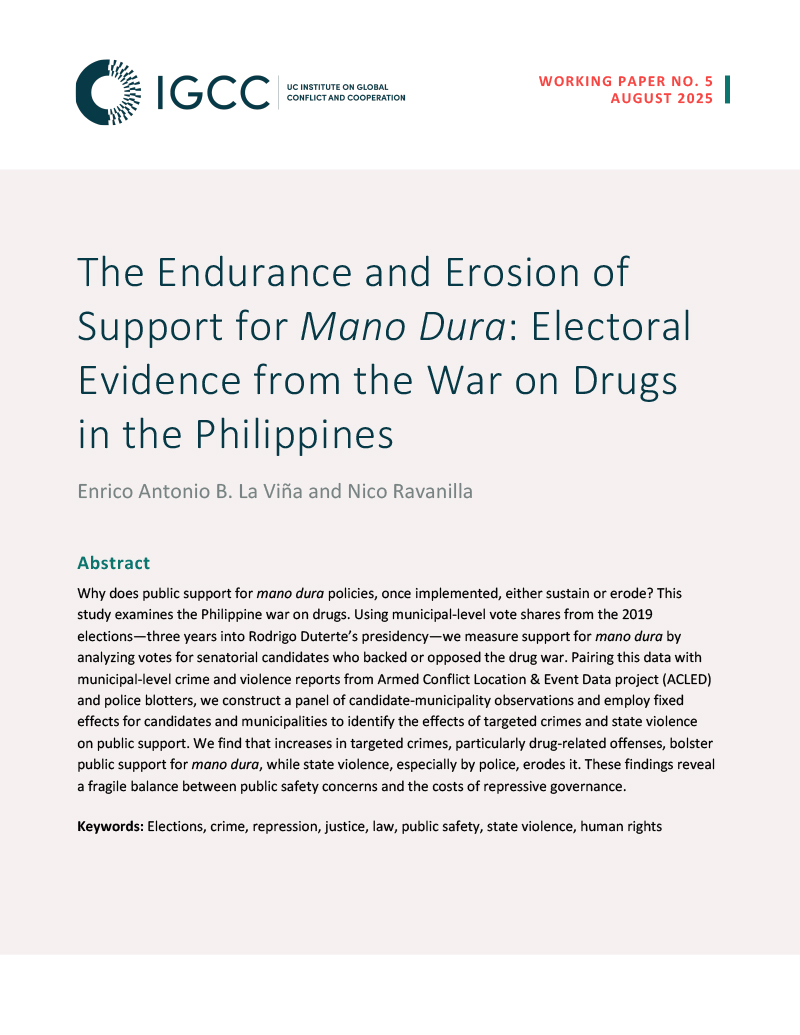Do Electorates Support Fighting Crime with an Iron Fist? Evidence from the Philippine Drug War

In this working paper, Enrico La Viña, a 2024-2025 IGCC dissertation fellow and PhD candidate at UC Davis, and Nico Ravanilla, an associate professor at UC San Diego, examine the Philippine war on drugs and measure support for mano dura. Their findings illustrate that while increases in targeted crimes bolster public support for mano dura, state violence—especially by police—erodes it, revealing a fragile balance between public safety concerns and the costs of repressive governance.
DownloadWhy does public support for mano dura policies, once implemented, either sustain or erode? In this working paper, Enrico La Viña, a 2024-2025 IGCC dissertation fellow and PhD candidate at UC Davis, and Nico Ravanilla, an associate professor at UC San Diego, examine the Philippine war on drugs. Using municipal-level vote shares from the 2019 elections—three years into Rodrigo Duterte’s presidency—they measure support for mano dura by analyzing votes for senatorial candidates who backed or opposed the drug war. Pairing this data with municipal-level crime and violence reports from Armed Conflict Location & Event Data project (ACLED) and police blotters, the authors construct a panel of candidate-municipality observations and employ fixed effects for candidates and municipalities to identify the effects of targeted crimes and state violence on public support. They find that increases in targeted crimes, particularly drug-related offenses, bolster public support for mano dura, while state violence, especially by police, erodes it. These findings reveal a fragile balance between public safety concerns and the costs of repressive governance.